It was a noble gesture that China’s President Xi Jinping so quickly and openly condoled with Japan after the fatal assassination attempt on former Prime Minister Shinzō Abe. After all, Abe’s backward-looking policy sought to close the book on Japan’s responsibility for crimes committed during World War II. With this, he rightly outraged many Chinese. But that was only one side of the conservative right-wing former Prime Minister’s story.
Abe is also responsible for the fact that the relationship between Japan and China, which has been tense for decades, has eased, at least economically, analyzes Michael Radunski in his obituary of the pragmatist Abe. And this at a time of increasingly intense rivalry between the superpowers China and the United States. Abe managed to expand the security alliance with the United States on the one hand, while strengthening trade with the People’s Republic on the other – a balancing act that other Western governments are on the verge of failing at. While Xi may not fully appreciate this policy, he does have respect for Abe.
Much harder to understand is the vaccination policy of the Beijing municipal government. First, it announced a vaccine mandate for certain population groups, then it retracted this announcement again – apparently due to massive backlash on social media. Is authoritarian China more citizen-friendly than it seems, and may it even listen to the concerns of the population? Finn Mayer-Kuckuk explores this question in his analysis.
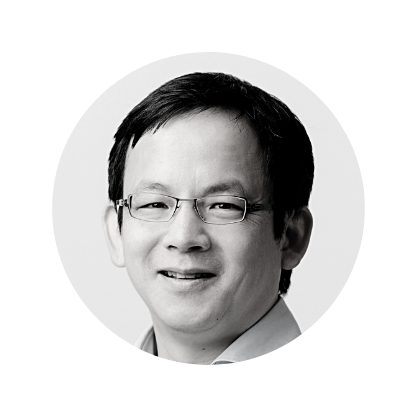
Officially, the July 6 notice is still in effect: Proof of vaccination is required in the health app to enter public spaces, the Beijing Municipal Health Commission announced. The rule was to take effect this Monday, July 11. It was seen as the first step toward compulsory vaccination. At the very least, such a rule would have been a test balloon for acceptance of tying participation in public life to vaccination status.
However, it seems that this test has already dropped in favor of the access regulations. The city government is communicatively preparing to back away from the minor vaccine mandate. The state-controlled newspaper Beijing Ribao 北京日报 published a summary of an interview with an unnamed but high-ranking city official. The tenor: Authorities consider vaccination an “important measure,” but citizens can “enter all public places regularly with temperature measurement and presenting the Covid code.” Simultaneously, the original information about the access restrictions was deleted from the newspaper’s website.
The center for disease control has taken note of the “concern and doubts” of the citizens. It is grateful for the understanding of city residents. Vaccination continues to be carried out according to the principle of “informed voluntariness and only with consent.” This would also be in line with the current version of the central government’s pandemic control plans.
It is still unclear what will now apply from this Monday. The original decree came just as hastily as now the retraction via newspaper interview. Which notice now takes precedence? The instruction for the requirement to present proof of vaccination came, after all, from the Deputy Head of the Beijing Municipal Health Commission 北京市卫生健康委员会. The contradictory announcement was made by “a person in charge of disease prevention of the city of Beijing”.
Actually, the agency’s announcement would beat the interview. If not for the intervention of the well-informed ex-editor-in-chief of the propaganda paper Global Times, Hu Xijin, on the social media platform Weibo. “I welcome the Beijing municipal government’s withdrawal of the vaccination order 疫苗令,” Hu wrote. “The reversal shows the power of public opinions.” Once again, according to Hu, those in charge are retreating “in time” before the “will of Chinese society”.
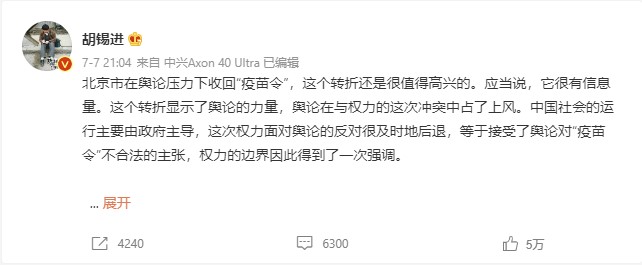
If Hu is wrong and entry restrictions do apply from Monday, the post would be highly embarrassing for Hu. After all, he portrays the reversal as a sign of how well the democratic structures in China are functioning. On Sunday, despite the discussion, there was no clarification on the info page of the city of Beijing. There, updated rules on contact restrictions were found. And, at the top, a greeting from Xi Jinping to an expert at the National Museum on the topic of historical-cultural heritage.
Indeed, China has an astonishingly hard time with any form of compulsory vaccination (China.Table reported). From the outside, this seems like a conundrum. Why doesn’t an authoritarian government with a massive Covid problem enforce 100 percent vaccine coverage with single or double boosters? Then, China’s vaccines would also prevent the majority of severe infections, thus allowing for relaxations. How are brutal lockdowns preferable to the short jab in the upper arm? Especially since this policy costs a lot of political capital for the leadership (China.Table reported)?
But the distrust toward compulsory medical treatment is apparently huge. The China of today is no longer the country where the one-child policy was enforced back in 1980. Sentiments spread through social media and have a contagious effect, possibly escalating into a wildfire if the censors don’t keep up. Since the access regulation was announced in the middle of last week, a veritable storm of anger over the access bans has probably built up on WeChat and Weibo. In Beijing, one-fifth of citizens over the age of 60 are still not vaccinated.
Beijing’s “vaccine mandate” would not have been compulsory vaccination at all. In Germany, “compulsory vaccination” is a regulation that imposes a fine for refusing to vaccinate. However, the Bundestag has passed a “facility-based vaccination requirement” that applies to employees of clinics and nursing homes. Here, too, the sanction for non-compliance is a fine.
China’s capital merely wanted to regulate access to a number of venues:
In parallel, the Covid app was to be given a new status: “not suitable for vaccination”, to be able to create exceptions. This means that the green code will once again be sufficient for access to public areas. So it ultimately was merely an incentive for the remaining unvaccinated to finally get immunized.
The process of announcement and half-hearted reversal is irritating in that it reveals a considerable weakness in Chinese policy toward the population. Since the Party portrays itself as the all-powerful benefactor, it also takes all the heat for what goes wrong or is unpopular. It, therefore, shows itself to be no less afraid of public opinion than politicians in democratic countries. The result of reinforcing this trend would be undemocratic populism.
Hu Xijin’s understanding of the division of powers in China is also troubling. The people do not always immediately understand what works best in the long term. Sometimes the best measures are initially unpopular, as the global pandemic has recently shown. Like the fight against climate change. However, if the government in China follows whoever shouts the loudest, then authoritarian rule forfeits one great advantage of being to enforce projects that are at least considered sensible.
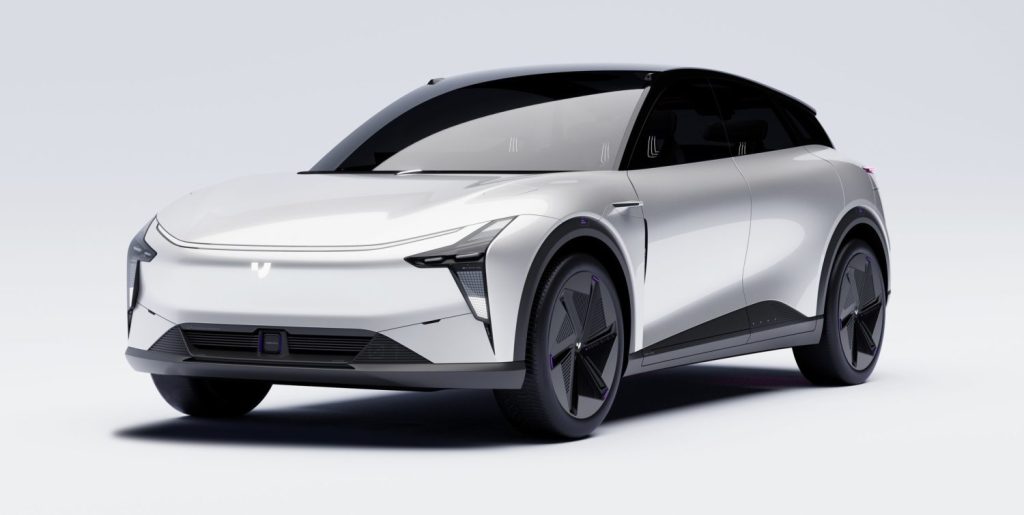
Baidu is about to become the first Chinese tech giant to start production of its own smart EV. Jidu 集度, a startup founded by Baidu and domestic car company Geely, recently unveiled its concept car Robo-1 in Beijing. Jidu showed off a futuristic vehicle with butterfly doors and a display that spans the entire dashboard. Manufacturing is scheduled to begin next year, according to a company statement. Reportedly, the production model will be 90 percent identical to the concept car.
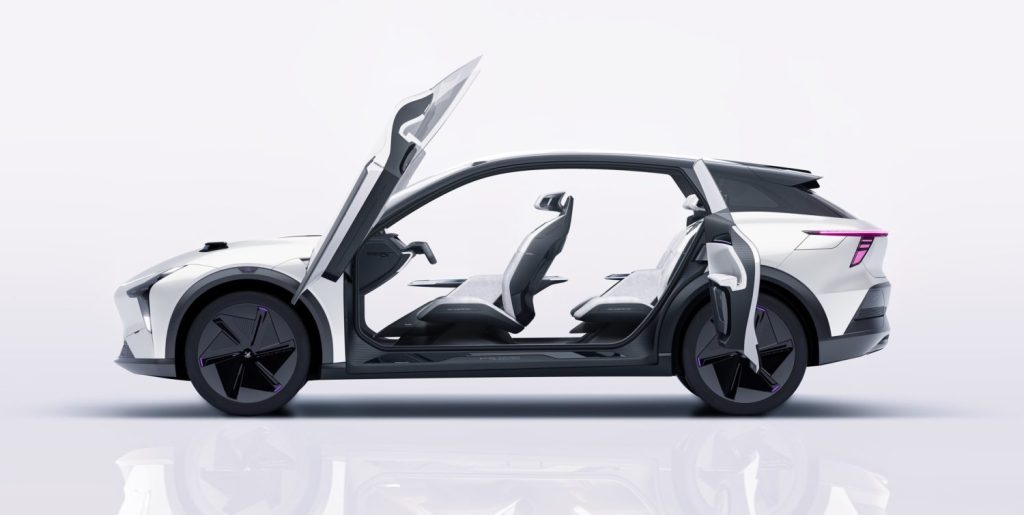

The competition is likely to keep an eye on the Robo-1. After all, the vehicle combines expertise from two worlds. Volvo parent and Mercedes major shareholder Geely just showed its capability to compete with Tesla and other EV manufacturers in the premium segment with the launch of the new Zeekr brand. Baidu, in turn, is a leading global player in artificial intelligence. So this is where hardware and software come together at a high level.
The Robo-1 is based on the same platform as the Zeekr 001 or the new Smart car jointly developed by Geely and Mercedes. In addition, however, there is technical equipment developed under Baidu’s leadership. Five radar eyes, two lidar sensors and twelve HD cameras are to be fitted into the Robo-1. The car would thus set new standards. Despite the lavish technical features, Jidu is apparently aiming to launch the Robo-1 on the market at a competitive price above ¥200,000 (€28,500).
If Jidu manages to roll out the Robo-1 in the coming year, it would also beat Xiaomi to the punch. The Chinese smartphone giant is also working on its own EV. Xiaomi is so far sticking to its goal of entering mass production by 2024. Apart from Baidu and Xiaomi, other Chinese tech giants are also investing in EVs.
Huawei, for example, has partnered with an array of car companies, offering them smart solutions. Tencent and Alibaba are taking a similar approach, having also made early investments in Chinese EV startups Xpeng (Alibaba) and Nio (Tencent). Only Xiaomi and Baidu are pursuing plans to build their own cars.
The Robo-1 aims to meet users’ needs for intelligent travel and a smart cabin, said Joe Xia Yiping, CEO of Jidu at the presentation. “The ultimate goal is to realize a fully driverless transportation experience,” the Jidu chief added. The autonomous driving technology for Jidu’s car will be based on Apollo, an open platform developed by Baidu and several partners.
It is used by dozens of Chinese car manufacturers. Baidu is considered a leader in China in developing technology that enables autonomous driving. The company is currently rolling out its own robotic cab service, Apollo Go, in major Chinese cities.
According to its own information, the company possesses a treasure trove of data from more than 20 million kilometers of monitored autonomous driving. Like Tesla, Baidu uses the data to train the algorithms that will later take over the wheel completely. Joern Petring/Gregor Koppenburg
Volkswagen has appointed a human rights officer following growing criticism of its Xinjiang plant. Kerstin Waltenberg is part of the compliance department and is to report directly to the board of management in this function. Volkswagen CEO Herbert Diess presented the appointment to the supervisory board on Friday.
The appointment of Waltenberg is primarily a preparation for the introduction of the Supply Chain Act in Germany on January 1, 2023, a spokesman told Deutsche Presse-Agentur. However, the post is also a response to criticism of VW’s plant in Xinjiang (China.Table reported). Waltenberg has worked for Volkswagen since 2017 as COO for Group Compliance. She is the author of specialist literature on compliance and due diligence topics. ari
Two leading Green Party parliamentarians are supporting the United States in its demand for Germany to stop selling military-grade marine machinery to China. This was reported by the German newspaper Welt am Sonntag. Juergen Trittin, currently Foreign Policy Spokesman for the parliamentary group in the Bundestag, and high-profile MEP Reinhard Buetikofer believe the practice of exporting ship engines is outdated. “Such support for China’s rapid rearmament is contrary to German interests,” Buetikofer told the newspaper.
The fact that German companies are supplying large ship propulsion systems to China without obtaining permits has long been a thorn in Washington’s side. This technology could potentially be used in warships. The State Department and the Commerce Department, both now headed by the Greens and both in charge of such exports, have so far failed to stop the practice. fin
US Secretary of State Antony Blinken has called on his counterpart Wang Yi to distance himself from Russia at the G20 foreign ministers’ meeting in Bali, Indonesia. “This really is a moment where we all have to stand up,” Blinken said after a five-hour meeting with Wang.
“Despite the complexities of our relationship,” the talks with Wang had been “useful and constructive,” Blinken said. However, he also expressed the US government’s “deep concerns of the United States regarding Beijing’s increasingly provocative rhetoric and activity toward Taiwan”.
China’s Foreign Minister did not comment in detail on Blinken’s demands. Before the meeting, however, Wang stressed how important it was for China and the United States to work together. A “normal exchange” and “mutual respect” were also necessary.
A March 2021 meeting between Blinken and US National Security Advisor Jake Sullivan and their Chinese counterparts in Alaska had resulted in an éclat. Both sides had hurled insults at each other. The last meeting between Blinken and Wang was held last October. It went more harmoniously. But opinions continue to diverge on the war in Ukraine. China has repeatedly criticized Western sanctions against Russia. flee
Apart from a two-week closure at the beginning of the pandemic, Macau’s casinos had managed to stay open despite the pandemic. That is now over. Due to the worst Covid outbreak to date, the government of the Chinese Special Administrative Region has ordered all casinos to close their doors for a week starting Monday. Non-essential businesses must also remain closed. Non-compliance will be punished with up to two years in prison, announced Andre Cheong of the city government.
Macau registered 71 new Covid infections on Saturday. This brought the number of cases to 1,374 since the current wave of infections began on June 18, according to authorities. Last week, the Grand Lisboa had already been forced to close after 13 Covid cases were linked to the city’s oldest casino. More than 500 people had to go into quarantine. The city government called on the approximately 600,000 residents to get tested. flee
One of China’s most popular up-and-coming actors has closed his own entertainment company and taken a job with a state-sponsored theater: 22-year-old Jackson Yee (Yi Yangqianxi), who rose to fame as a member of the popular boy band TFBoys, has signed on as an actor with the National Theatre of China, according to the Ministry of Human Resources and Social Security.
Yee, whose real name is Yiyang Qianxi, is known from the war epic “The Battle at Lake Changjin” (“长津湖”). With a budget of around $200 million, the movie is considered the most expensive production in the People’s Republic to date. It was a commissioned propaganda production of the highest order. It was commissioned by China’s National Radio and Television Administration, the Central Military Commission and the Communist Party’s Propaganda Department. Yee did not initially comment on the switch to the government job. Government jobs are usually well paid, and for the theater Yee is also a figurehead to attract young audiences. ari
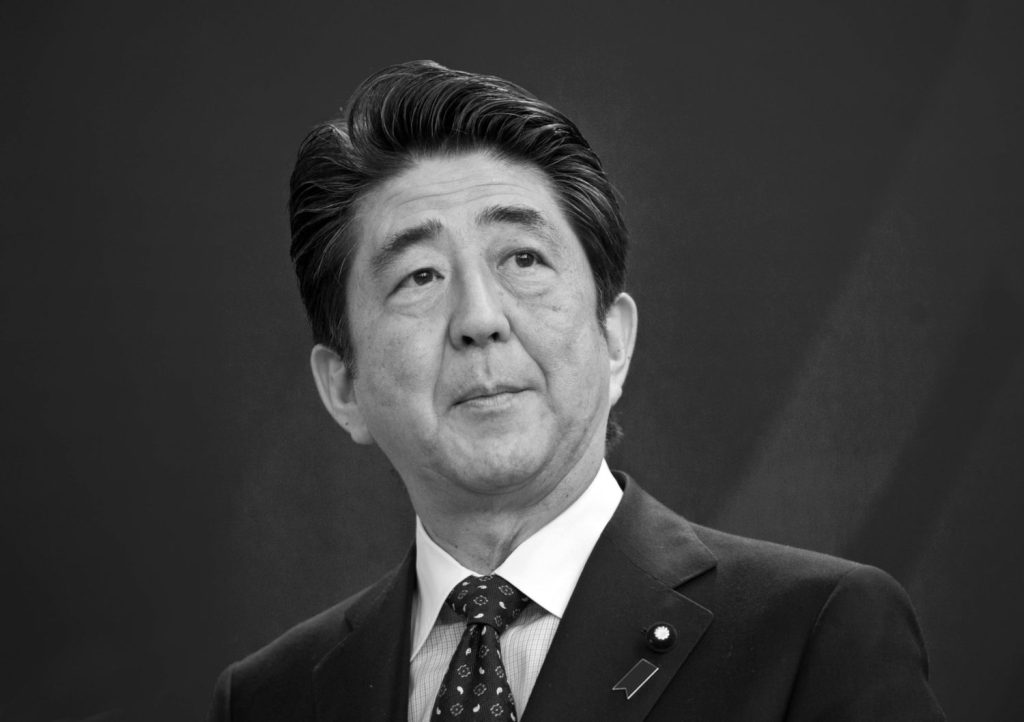
Shinzō Abe, arguably Japan’s most important politician since the end of World War II, was gunned down on Friday. No one else served as Prime Minister for such a long time – in 2006/2007, then again from 2012 to 2020. His first term ended quickly and unsuccessfully, a brief episode in a period of political instability in Japan, when no Prime Minister managed to stay in office for more than 16 months. It was not until Abe took office for the second time in 2012 that his real political impact began. He was to have a greater impact on Japan than any other politician since World War II – particularly internationally. And especially Japan’s relationship with its great rival China.
One person who can best assess Abe’s influence on Japan’s course is Volker Stanzel. The German diplomat is both a Japanologist and a Sinologist. As ambassador, he first worked in China, and later in Japan. Stanzel knew Abe personally, met him many times, and told China.Table: “Many describe Abe as a China hawk who was always working against the People’s Republic. That may have been true in his first years in office, but not later.”
When Abe took office in 2012, things were not going well for Sino-Japanese relations. “The first major wave of conflict over the Senkaku/Diaoyu Islands had just broken out, and Japan suddenly found itself facing an incredibly aggressive China,” Stanzel recalls.
Abe was under tremendous pressure at the time – and it wasn’t long after he took office that he had to react immediately to his great rival. At the time, Abe was “very, very critical of China,” as Stanzel, a professional diplomat, described it. Some reasons for this can be found in his family background.
Born in Tokyo in 1954, Abe came from a Japanese political dynasty: His father Shintaro served as the country’s Foreign Minister, and his great-uncle Eisaku Sato was even Prime Minister. The most influential political figure, however, was his grandfather Nobusuke Kishi, whom the government sent to Manchukuo (Manchuria) in the 1930s. Officially, China’s last emperor, Puyi, ruled the territory in northern China, but the Japanese were actually in charge – and Kishi reigned with a hard hand and extreme brutality.
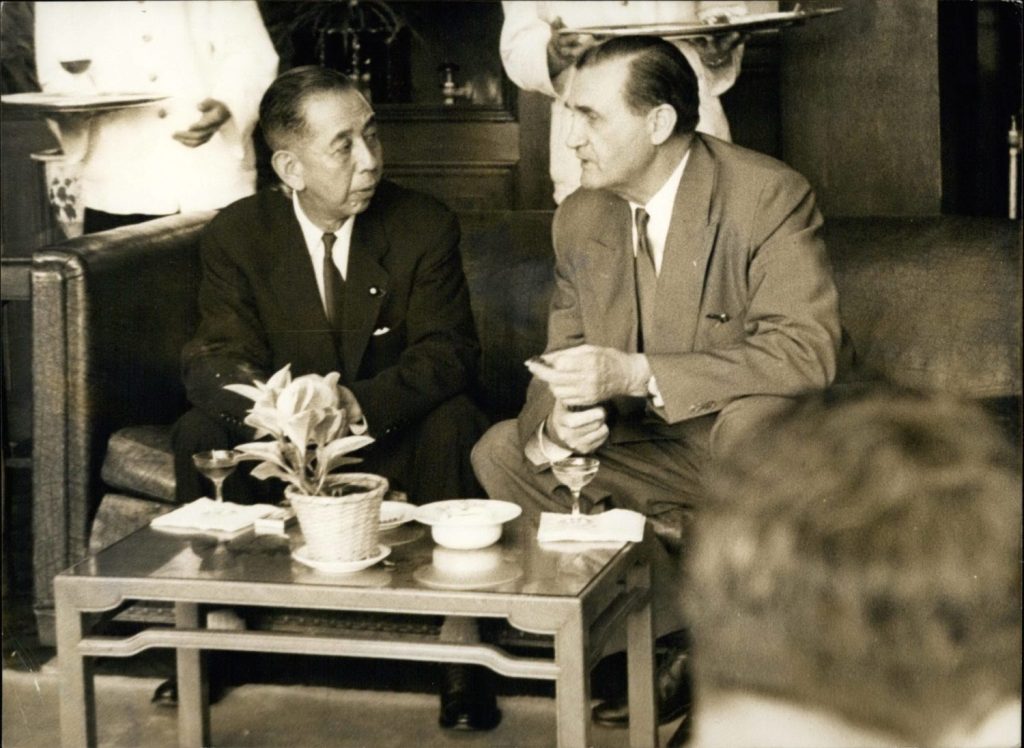
After the war, Kishi was convicted as a first-class war criminal. Shinzō Abe later writes about this in his book “Utsukushii Kuni e” (Towards a Beautiful Country: My Vision For Japan): “Some people used to point to my grandfather as a ‘Class-A war criminal suspect,’ and I felt strong repulsion. Because of that experience, I may have become emotionally attached to ‘conservatism,’ on the contrary.” Grandfather Kishi, incidentally, despite his background, was Prime Minister of Japan from 1957 to 1960 and did his part to bring the country back into the world community.
For Abe, too, “conservatism” in foreign policy means leading the country back into international politics as an important player. To this end, he wanted to amend Japan’s pacifist constitution – especially Article 9, which has prohibited the country from engaging in warlike activities and maintaining armed forces since 1946. In addition, the country was supposed to confidently face the challenge of a rising China.
But Abe quickly learned that he will not succeed with his initial anti-China stance. “It took several years for Abe to develop his own China policy,” Stanzel judges. “Abe subsequently puts his strict right-wing conservative ideology on the back burner and develops into a successful pragmatist.”
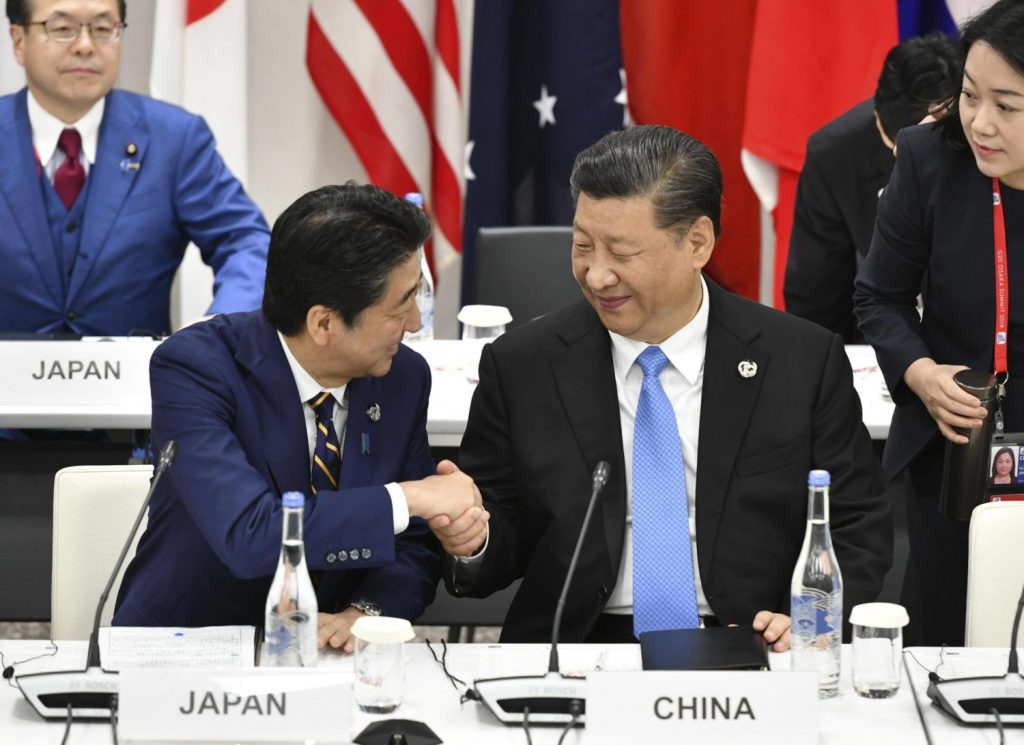
Stanzel remembers how Abe changed at that time into a very Western-looking politician. While great value is usually placed on polite distance in Asia, Japan’s Prime Minister had a completely different demeanor. “In conversation, Abe was very open and quickly became personal in his speech, as you might otherwise only know from American politicians, like when Joe meets Boris.”
Committed to personal exchange, with a Western habitus and a strong alignment with the liberal democracies of the region, Abe has managed to make an impact in foreign policy: He successfully forged multilateral alliances to contain China’s rise. He popularized the concept of a free and open Indo-Pacific and strengthened Japan’s relations with regional partners Australia and India. Together with the USA, they form the Quad Forum (China.Table reported).
Abe even saved the TPP free trade zone, conceived as a strategic counterweight against China, after former US President Donald Trump withdrew the US from the trans-Pacific partnership agreement in 2017. “Through his way, Abe had managed to position Japan in international politics and find many allies, in the region, in the US even in Trump’s time, and also in Europe,” Stanzel concludes. “This was not to be expected after his first year in office.”
In domestic politics, too, he pragmatically reached his goals: Instead of a fundamental change to the constitution, he was able to expand the deployment options of the self-defense forces, which are actually limited to national defense, through small changes to the law.
And so, despite justified criticism – for example, for failing to apologize for Japan’s wartime atrocities or his regular visits to the Yasukuni Shrine – Abe’s overall track record is not at all negative, but rather mixed. “Abe should be seen as a key figure and statesman that took the brave step of ‘internationalizing’ ties with Beijing,” Jonathan Berkshire Miller told China.Table. “By this, I mean that Abe realized especially after 2012-13 and increased tensions over the Senkaku island, that an effective response to China’s assertiveness in the region would require a more dynamic approach,” explains the international affairs professional from the Japan Institute of International Affairs in Canada. “This involved both a reassurance of the US alliance, but also the development of other relationships complementing the alliance such as Australia, India and others.”
Even after his second resignation as Prime Minister in 2020, Abe continued to influence Japanese foreign policy. With bold words, he assured Taiwan of Japan’s support and urged the US to do the same (China.Table reported). “A Taiwan emergency is a Japanese emergency, and therefore an emergency for the Japan-U.S. alliance. People in Beijing, President Xi Jinping in particular, should never have a misunderstanding in recognizing this,” Abe said in Taipei late last year. He even raised the possibility of deploying US nuclear weapons in public discourse – an absolute taboo so far in Japan, the world’s only country to be hit by atomic bombs.
The reactions to Abe’s death are correspondingly strong: Japan is in shock, flags are at half-mast in Taiwan, while nationalist voices are celebrating the assassination on Chinese social media. Although President Xi Jinping still personally expressed his condolences on Saturday: “I deeply regret the sudden death of former Prime Minister Abe.” But the Foreign Ministry in Beijing already avoided condemning the insipid remarks of some Chinese nationalists. Foreign Office spokesman Zhao Lijian merely said the incident should not be linked to Sino-Japanese relations.
” Yet Abe has long since ceased to be an ideologue, even when it came to dealing with China,” explains diplomat Stanzel. “He has definitely made steps toward Beijing, the two countries are closely linked economically, and despite all the tensions, bilateral relations are on a firm footing. At least the two top politicians have spoken amiably with and about each other.”
The background to the assassination attempt on Abe is still unclear. Why the former Prime Minister was gunned down at an election rally in the western Japanese city of Nara on Friday will have to be investigated by the police. It is the bitter irony of history that the last Japanese Prime Minister to be assassinated was, of all people, Nobosuke Kishi – Abe’s grandfather and ideological role model. Kishi, however, survived the 1960 attack. Shinzō Abe, on the other hand, will be buried on Tuesday in the presence of his closest family circle. Michael Radunski
Jan Harnisch is the new Global CEO for the logistics company Rhenus Air & Ocean. Harnisch takes over the position together with Tobias Koenig. As Global COO and CEO for Far East Asia, Harnisch was previously also responsible for the China business.
Martin Tschendel has been Product Controller for VW subsidiary Mobility Asia in Beijing since June. Tschendel was previously also Risk Manager at Mobility Asia.
Is something changing in your organization? Why not let us know at heads@table.media!
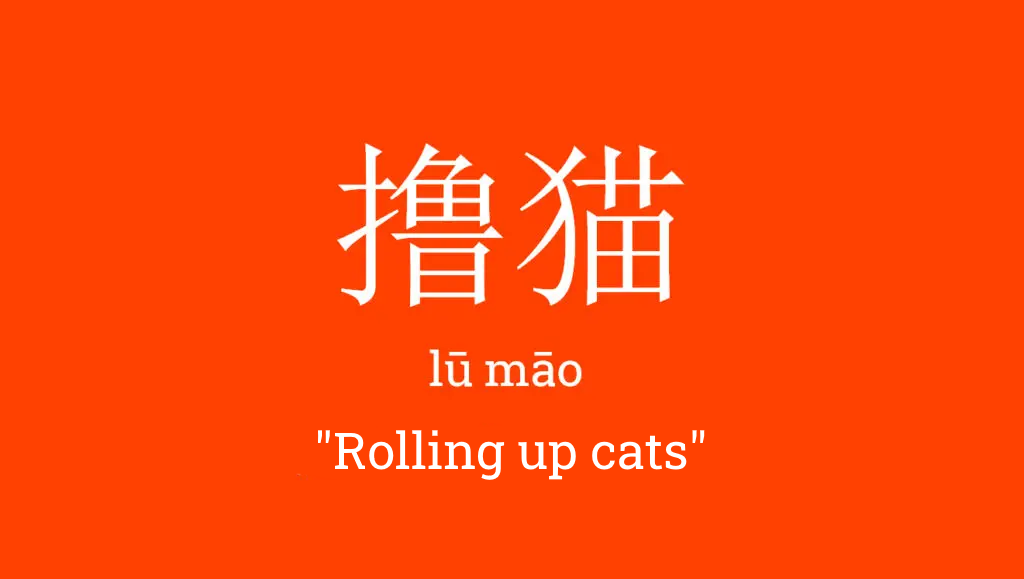
What do cats, politicians’ shirtsleeves, dumbbells and BBQ skewers have in common? You can “roll them up” in China. You heard right. Because all these things can be combined in Chinese with a trendy verb, for which a similarly flexible dictionary entry has yet to be found in the West.
撸 lū is the magic word that originally comes from Shanghainese. For a long time, it was mainly used in the expression 撸袖子 lū xiùzi or 撸起袖子 lūqǐ xiùzi (“to roll up one’s sleeves”). China’s president has also made use of the metaphor several times in the media, calling on his countrymen to “roll up their sleeves and set to work with vigor” (撸起袖子加油干 lūqǐ xiùzi jiāyóu gàn) in order to tackle the major development tasks. A slogan that is occasionally found on red banners along the roadside.
Quite literally, 撸 lū describes the movement of stroking the palm of one’s hand lengthwise over an object in a specific direction (usually with a bit of pressure). Recently, the Chinese net community has discovered the rather seldom-used character and is now happily transferring it to other “rolling-up” scenarios. First and foremost: pet rolling-up.
For some time now, stress-ridden Chinese city dwellers have discovered the soothing effect of cuddling fluffy four-legged friends. And so cat cafés, in particular, enjoy great popularity in Chinese metropolises. Creative businessmen have now expanded the petting segment to include a number of cuddle alternatives. In large shopping centers and trendy neighborhoods, you may now stumble across a whole range of such “pet rolling up stores” (撸宠店 lūchǒngdiàn). You can not only knead cats (撸猫 lū māo) but also dogs (撸狗 lū gǒu – preferably corgis 撸柯基 lū kējī and shibas 撸柴犬 lū cháiquǎn), rabbits (撸兔子 lū tùzi), even alpacas (撸羊驼 lū yángtuó), ducks (撸鸭 lū yā) and miniature pigs (撸猪 lū zhū).
Another rolling-up segment on the rise, by the way, is the fitness industry. Here, muscle training does not involve lifting weights, but rather “stroking” or “rolling-up” (撸铁 lū tiě) metal. And the rolling-up movement also helps with putting on the pounds again afterward, namely at the BBQ. The process of gnawing and stripping pieces of meat and vegetables from a wooden or metal skewer is now called “skewer rolling up” (撸串儿 lū chuàr). Let’s see how else the Chinese net community will roll up its sleeves and come up with new expressions.
Verena Menzel runs the online language school New Chinese in Beijing.
It was a noble gesture that China’s President Xi Jinping so quickly and openly condoled with Japan after the fatal assassination attempt on former Prime Minister Shinzō Abe. After all, Abe’s backward-looking policy sought to close the book on Japan’s responsibility for crimes committed during World War II. With this, he rightly outraged many Chinese. But that was only one side of the conservative right-wing former Prime Minister’s story.
Abe is also responsible for the fact that the relationship between Japan and China, which has been tense for decades, has eased, at least economically, analyzes Michael Radunski in his obituary of the pragmatist Abe. And this at a time of increasingly intense rivalry between the superpowers China and the United States. Abe managed to expand the security alliance with the United States on the one hand, while strengthening trade with the People’s Republic on the other – a balancing act that other Western governments are on the verge of failing at. While Xi may not fully appreciate this policy, he does have respect for Abe.
Much harder to understand is the vaccination policy of the Beijing municipal government. First, it announced a vaccine mandate for certain population groups, then it retracted this announcement again – apparently due to massive backlash on social media. Is authoritarian China more citizen-friendly than it seems, and may it even listen to the concerns of the population? Finn Mayer-Kuckuk explores this question in his analysis.

Officially, the July 6 notice is still in effect: Proof of vaccination is required in the health app to enter public spaces, the Beijing Municipal Health Commission announced. The rule was to take effect this Monday, July 11. It was seen as the first step toward compulsory vaccination. At the very least, such a rule would have been a test balloon for acceptance of tying participation in public life to vaccination status.
However, it seems that this test has already dropped in favor of the access regulations. The city government is communicatively preparing to back away from the minor vaccine mandate. The state-controlled newspaper Beijing Ribao 北京日报 published a summary of an interview with an unnamed but high-ranking city official. The tenor: Authorities consider vaccination an “important measure,” but citizens can “enter all public places regularly with temperature measurement and presenting the Covid code.” Simultaneously, the original information about the access restrictions was deleted from the newspaper’s website.
The center for disease control has taken note of the “concern and doubts” of the citizens. It is grateful for the understanding of city residents. Vaccination continues to be carried out according to the principle of “informed voluntariness and only with consent.” This would also be in line with the current version of the central government’s pandemic control plans.
It is still unclear what will now apply from this Monday. The original decree came just as hastily as now the retraction via newspaper interview. Which notice now takes precedence? The instruction for the requirement to present proof of vaccination came, after all, from the Deputy Head of the Beijing Municipal Health Commission 北京市卫生健康委员会. The contradictory announcement was made by “a person in charge of disease prevention of the city of Beijing”.
Actually, the agency’s announcement would beat the interview. If not for the intervention of the well-informed ex-editor-in-chief of the propaganda paper Global Times, Hu Xijin, on the social media platform Weibo. “I welcome the Beijing municipal government’s withdrawal of the vaccination order 疫苗令,” Hu wrote. “The reversal shows the power of public opinions.” Once again, according to Hu, those in charge are retreating “in time” before the “will of Chinese society”.

If Hu is wrong and entry restrictions do apply from Monday, the post would be highly embarrassing for Hu. After all, he portrays the reversal as a sign of how well the democratic structures in China are functioning. On Sunday, despite the discussion, there was no clarification on the info page of the city of Beijing. There, updated rules on contact restrictions were found. And, at the top, a greeting from Xi Jinping to an expert at the National Museum on the topic of historical-cultural heritage.
Indeed, China has an astonishingly hard time with any form of compulsory vaccination (China.Table reported). From the outside, this seems like a conundrum. Why doesn’t an authoritarian government with a massive Covid problem enforce 100 percent vaccine coverage with single or double boosters? Then, China’s vaccines would also prevent the majority of severe infections, thus allowing for relaxations. How are brutal lockdowns preferable to the short jab in the upper arm? Especially since this policy costs a lot of political capital for the leadership (China.Table reported)?
But the distrust toward compulsory medical treatment is apparently huge. The China of today is no longer the country where the one-child policy was enforced back in 1980. Sentiments spread through social media and have a contagious effect, possibly escalating into a wildfire if the censors don’t keep up. Since the access regulation was announced in the middle of last week, a veritable storm of anger over the access bans has probably built up on WeChat and Weibo. In Beijing, one-fifth of citizens over the age of 60 are still not vaccinated.
Beijing’s “vaccine mandate” would not have been compulsory vaccination at all. In Germany, “compulsory vaccination” is a regulation that imposes a fine for refusing to vaccinate. However, the Bundestag has passed a “facility-based vaccination requirement” that applies to employees of clinics and nursing homes. Here, too, the sanction for non-compliance is a fine.
China’s capital merely wanted to regulate access to a number of venues:
In parallel, the Covid app was to be given a new status: “not suitable for vaccination”, to be able to create exceptions. This means that the green code will once again be sufficient for access to public areas. So it ultimately was merely an incentive for the remaining unvaccinated to finally get immunized.
The process of announcement and half-hearted reversal is irritating in that it reveals a considerable weakness in Chinese policy toward the population. Since the Party portrays itself as the all-powerful benefactor, it also takes all the heat for what goes wrong or is unpopular. It, therefore, shows itself to be no less afraid of public opinion than politicians in democratic countries. The result of reinforcing this trend would be undemocratic populism.
Hu Xijin’s understanding of the division of powers in China is also troubling. The people do not always immediately understand what works best in the long term. Sometimes the best measures are initially unpopular, as the global pandemic has recently shown. Like the fight against climate change. However, if the government in China follows whoever shouts the loudest, then authoritarian rule forfeits one great advantage of being to enforce projects that are at least considered sensible.

Baidu is about to become the first Chinese tech giant to start production of its own smart EV. Jidu 集度, a startup founded by Baidu and domestic car company Geely, recently unveiled its concept car Robo-1 in Beijing. Jidu showed off a futuristic vehicle with butterfly doors and a display that spans the entire dashboard. Manufacturing is scheduled to begin next year, according to a company statement. Reportedly, the production model will be 90 percent identical to the concept car.


The competition is likely to keep an eye on the Robo-1. After all, the vehicle combines expertise from two worlds. Volvo parent and Mercedes major shareholder Geely just showed its capability to compete with Tesla and other EV manufacturers in the premium segment with the launch of the new Zeekr brand. Baidu, in turn, is a leading global player in artificial intelligence. So this is where hardware and software come together at a high level.
The Robo-1 is based on the same platform as the Zeekr 001 or the new Smart car jointly developed by Geely and Mercedes. In addition, however, there is technical equipment developed under Baidu’s leadership. Five radar eyes, two lidar sensors and twelve HD cameras are to be fitted into the Robo-1. The car would thus set new standards. Despite the lavish technical features, Jidu is apparently aiming to launch the Robo-1 on the market at a competitive price above ¥200,000 (€28,500).
If Jidu manages to roll out the Robo-1 in the coming year, it would also beat Xiaomi to the punch. The Chinese smartphone giant is also working on its own EV. Xiaomi is so far sticking to its goal of entering mass production by 2024. Apart from Baidu and Xiaomi, other Chinese tech giants are also investing in EVs.
Huawei, for example, has partnered with an array of car companies, offering them smart solutions. Tencent and Alibaba are taking a similar approach, having also made early investments in Chinese EV startups Xpeng (Alibaba) and Nio (Tencent). Only Xiaomi and Baidu are pursuing plans to build their own cars.
The Robo-1 aims to meet users’ needs for intelligent travel and a smart cabin, said Joe Xia Yiping, CEO of Jidu at the presentation. “The ultimate goal is to realize a fully driverless transportation experience,” the Jidu chief added. The autonomous driving technology for Jidu’s car will be based on Apollo, an open platform developed by Baidu and several partners.
It is used by dozens of Chinese car manufacturers. Baidu is considered a leader in China in developing technology that enables autonomous driving. The company is currently rolling out its own robotic cab service, Apollo Go, in major Chinese cities.
According to its own information, the company possesses a treasure trove of data from more than 20 million kilometers of monitored autonomous driving. Like Tesla, Baidu uses the data to train the algorithms that will later take over the wheel completely. Joern Petring/Gregor Koppenburg
Volkswagen has appointed a human rights officer following growing criticism of its Xinjiang plant. Kerstin Waltenberg is part of the compliance department and is to report directly to the board of management in this function. Volkswagen CEO Herbert Diess presented the appointment to the supervisory board on Friday.
The appointment of Waltenberg is primarily a preparation for the introduction of the Supply Chain Act in Germany on January 1, 2023, a spokesman told Deutsche Presse-Agentur. However, the post is also a response to criticism of VW’s plant in Xinjiang (China.Table reported). Waltenberg has worked for Volkswagen since 2017 as COO for Group Compliance. She is the author of specialist literature on compliance and due diligence topics. ari
Two leading Green Party parliamentarians are supporting the United States in its demand for Germany to stop selling military-grade marine machinery to China. This was reported by the German newspaper Welt am Sonntag. Juergen Trittin, currently Foreign Policy Spokesman for the parliamentary group in the Bundestag, and high-profile MEP Reinhard Buetikofer believe the practice of exporting ship engines is outdated. “Such support for China’s rapid rearmament is contrary to German interests,” Buetikofer told the newspaper.
The fact that German companies are supplying large ship propulsion systems to China without obtaining permits has long been a thorn in Washington’s side. This technology could potentially be used in warships. The State Department and the Commerce Department, both now headed by the Greens and both in charge of such exports, have so far failed to stop the practice. fin
US Secretary of State Antony Blinken has called on his counterpart Wang Yi to distance himself from Russia at the G20 foreign ministers’ meeting in Bali, Indonesia. “This really is a moment where we all have to stand up,” Blinken said after a five-hour meeting with Wang.
“Despite the complexities of our relationship,” the talks with Wang had been “useful and constructive,” Blinken said. However, he also expressed the US government’s “deep concerns of the United States regarding Beijing’s increasingly provocative rhetoric and activity toward Taiwan”.
China’s Foreign Minister did not comment in detail on Blinken’s demands. Before the meeting, however, Wang stressed how important it was for China and the United States to work together. A “normal exchange” and “mutual respect” were also necessary.
A March 2021 meeting between Blinken and US National Security Advisor Jake Sullivan and their Chinese counterparts in Alaska had resulted in an éclat. Both sides had hurled insults at each other. The last meeting between Blinken and Wang was held last October. It went more harmoniously. But opinions continue to diverge on the war in Ukraine. China has repeatedly criticized Western sanctions against Russia. flee
Apart from a two-week closure at the beginning of the pandemic, Macau’s casinos had managed to stay open despite the pandemic. That is now over. Due to the worst Covid outbreak to date, the government of the Chinese Special Administrative Region has ordered all casinos to close their doors for a week starting Monday. Non-essential businesses must also remain closed. Non-compliance will be punished with up to two years in prison, announced Andre Cheong of the city government.
Macau registered 71 new Covid infections on Saturday. This brought the number of cases to 1,374 since the current wave of infections began on June 18, according to authorities. Last week, the Grand Lisboa had already been forced to close after 13 Covid cases were linked to the city’s oldest casino. More than 500 people had to go into quarantine. The city government called on the approximately 600,000 residents to get tested. flee
One of China’s most popular up-and-coming actors has closed his own entertainment company and taken a job with a state-sponsored theater: 22-year-old Jackson Yee (Yi Yangqianxi), who rose to fame as a member of the popular boy band TFBoys, has signed on as an actor with the National Theatre of China, according to the Ministry of Human Resources and Social Security.
Yee, whose real name is Yiyang Qianxi, is known from the war epic “The Battle at Lake Changjin” (“长津湖”). With a budget of around $200 million, the movie is considered the most expensive production in the People’s Republic to date. It was a commissioned propaganda production of the highest order. It was commissioned by China’s National Radio and Television Administration, the Central Military Commission and the Communist Party’s Propaganda Department. Yee did not initially comment on the switch to the government job. Government jobs are usually well paid, and for the theater Yee is also a figurehead to attract young audiences. ari

Shinzō Abe, arguably Japan’s most important politician since the end of World War II, was gunned down on Friday. No one else served as Prime Minister for such a long time – in 2006/2007, then again from 2012 to 2020. His first term ended quickly and unsuccessfully, a brief episode in a period of political instability in Japan, when no Prime Minister managed to stay in office for more than 16 months. It was not until Abe took office for the second time in 2012 that his real political impact began. He was to have a greater impact on Japan than any other politician since World War II – particularly internationally. And especially Japan’s relationship with its great rival China.
One person who can best assess Abe’s influence on Japan’s course is Volker Stanzel. The German diplomat is both a Japanologist and a Sinologist. As ambassador, he first worked in China, and later in Japan. Stanzel knew Abe personally, met him many times, and told China.Table: “Many describe Abe as a China hawk who was always working against the People’s Republic. That may have been true in his first years in office, but not later.”
When Abe took office in 2012, things were not going well for Sino-Japanese relations. “The first major wave of conflict over the Senkaku/Diaoyu Islands had just broken out, and Japan suddenly found itself facing an incredibly aggressive China,” Stanzel recalls.
Abe was under tremendous pressure at the time – and it wasn’t long after he took office that he had to react immediately to his great rival. At the time, Abe was “very, very critical of China,” as Stanzel, a professional diplomat, described it. Some reasons for this can be found in his family background.
Born in Tokyo in 1954, Abe came from a Japanese political dynasty: His father Shintaro served as the country’s Foreign Minister, and his great-uncle Eisaku Sato was even Prime Minister. The most influential political figure, however, was his grandfather Nobusuke Kishi, whom the government sent to Manchukuo (Manchuria) in the 1930s. Officially, China’s last emperor, Puyi, ruled the territory in northern China, but the Japanese were actually in charge – and Kishi reigned with a hard hand and extreme brutality.

After the war, Kishi was convicted as a first-class war criminal. Shinzō Abe later writes about this in his book “Utsukushii Kuni e” (Towards a Beautiful Country: My Vision For Japan): “Some people used to point to my grandfather as a ‘Class-A war criminal suspect,’ and I felt strong repulsion. Because of that experience, I may have become emotionally attached to ‘conservatism,’ on the contrary.” Grandfather Kishi, incidentally, despite his background, was Prime Minister of Japan from 1957 to 1960 and did his part to bring the country back into the world community.
For Abe, too, “conservatism” in foreign policy means leading the country back into international politics as an important player. To this end, he wanted to amend Japan’s pacifist constitution – especially Article 9, which has prohibited the country from engaging in warlike activities and maintaining armed forces since 1946. In addition, the country was supposed to confidently face the challenge of a rising China.
But Abe quickly learned that he will not succeed with his initial anti-China stance. “It took several years for Abe to develop his own China policy,” Stanzel judges. “Abe subsequently puts his strict right-wing conservative ideology on the back burner and develops into a successful pragmatist.”

Stanzel remembers how Abe changed at that time into a very Western-looking politician. While great value is usually placed on polite distance in Asia, Japan’s Prime Minister had a completely different demeanor. “In conversation, Abe was very open and quickly became personal in his speech, as you might otherwise only know from American politicians, like when Joe meets Boris.”
Committed to personal exchange, with a Western habitus and a strong alignment with the liberal democracies of the region, Abe has managed to make an impact in foreign policy: He successfully forged multilateral alliances to contain China’s rise. He popularized the concept of a free and open Indo-Pacific and strengthened Japan’s relations with regional partners Australia and India. Together with the USA, they form the Quad Forum (China.Table reported).
Abe even saved the TPP free trade zone, conceived as a strategic counterweight against China, after former US President Donald Trump withdrew the US from the trans-Pacific partnership agreement in 2017. “Through his way, Abe had managed to position Japan in international politics and find many allies, in the region, in the US even in Trump’s time, and also in Europe,” Stanzel concludes. “This was not to be expected after his first year in office.”
In domestic politics, too, he pragmatically reached his goals: Instead of a fundamental change to the constitution, he was able to expand the deployment options of the self-defense forces, which are actually limited to national defense, through small changes to the law.
And so, despite justified criticism – for example, for failing to apologize for Japan’s wartime atrocities or his regular visits to the Yasukuni Shrine – Abe’s overall track record is not at all negative, but rather mixed. “Abe should be seen as a key figure and statesman that took the brave step of ‘internationalizing’ ties with Beijing,” Jonathan Berkshire Miller told China.Table. “By this, I mean that Abe realized especially after 2012-13 and increased tensions over the Senkaku island, that an effective response to China’s assertiveness in the region would require a more dynamic approach,” explains the international affairs professional from the Japan Institute of International Affairs in Canada. “This involved both a reassurance of the US alliance, but also the development of other relationships complementing the alliance such as Australia, India and others.”
Even after his second resignation as Prime Minister in 2020, Abe continued to influence Japanese foreign policy. With bold words, he assured Taiwan of Japan’s support and urged the US to do the same (China.Table reported). “A Taiwan emergency is a Japanese emergency, and therefore an emergency for the Japan-U.S. alliance. People in Beijing, President Xi Jinping in particular, should never have a misunderstanding in recognizing this,” Abe said in Taipei late last year. He even raised the possibility of deploying US nuclear weapons in public discourse – an absolute taboo so far in Japan, the world’s only country to be hit by atomic bombs.
The reactions to Abe’s death are correspondingly strong: Japan is in shock, flags are at half-mast in Taiwan, while nationalist voices are celebrating the assassination on Chinese social media. Although President Xi Jinping still personally expressed his condolences on Saturday: “I deeply regret the sudden death of former Prime Minister Abe.” But the Foreign Ministry in Beijing already avoided condemning the insipid remarks of some Chinese nationalists. Foreign Office spokesman Zhao Lijian merely said the incident should not be linked to Sino-Japanese relations.
” Yet Abe has long since ceased to be an ideologue, even when it came to dealing with China,” explains diplomat Stanzel. “He has definitely made steps toward Beijing, the two countries are closely linked economically, and despite all the tensions, bilateral relations are on a firm footing. At least the two top politicians have spoken amiably with and about each other.”
The background to the assassination attempt on Abe is still unclear. Why the former Prime Minister was gunned down at an election rally in the western Japanese city of Nara on Friday will have to be investigated by the police. It is the bitter irony of history that the last Japanese Prime Minister to be assassinated was, of all people, Nobosuke Kishi – Abe’s grandfather and ideological role model. Kishi, however, survived the 1960 attack. Shinzō Abe, on the other hand, will be buried on Tuesday in the presence of his closest family circle. Michael Radunski
Jan Harnisch is the new Global CEO for the logistics company Rhenus Air & Ocean. Harnisch takes over the position together with Tobias Koenig. As Global COO and CEO for Far East Asia, Harnisch was previously also responsible for the China business.
Martin Tschendel has been Product Controller for VW subsidiary Mobility Asia in Beijing since June. Tschendel was previously also Risk Manager at Mobility Asia.
Is something changing in your organization? Why not let us know at heads@table.media!

What do cats, politicians’ shirtsleeves, dumbbells and BBQ skewers have in common? You can “roll them up” in China. You heard right. Because all these things can be combined in Chinese with a trendy verb, for which a similarly flexible dictionary entry has yet to be found in the West.
撸 lū is the magic word that originally comes from Shanghainese. For a long time, it was mainly used in the expression 撸袖子 lū xiùzi or 撸起袖子 lūqǐ xiùzi (“to roll up one’s sleeves”). China’s president has also made use of the metaphor several times in the media, calling on his countrymen to “roll up their sleeves and set to work with vigor” (撸起袖子加油干 lūqǐ xiùzi jiāyóu gàn) in order to tackle the major development tasks. A slogan that is occasionally found on red banners along the roadside.
Quite literally, 撸 lū describes the movement of stroking the palm of one’s hand lengthwise over an object in a specific direction (usually with a bit of pressure). Recently, the Chinese net community has discovered the rather seldom-used character and is now happily transferring it to other “rolling-up” scenarios. First and foremost: pet rolling-up.
For some time now, stress-ridden Chinese city dwellers have discovered the soothing effect of cuddling fluffy four-legged friends. And so cat cafés, in particular, enjoy great popularity in Chinese metropolises. Creative businessmen have now expanded the petting segment to include a number of cuddle alternatives. In large shopping centers and trendy neighborhoods, you may now stumble across a whole range of such “pet rolling up stores” (撸宠店 lūchǒngdiàn). You can not only knead cats (撸猫 lū māo) but also dogs (撸狗 lū gǒu – preferably corgis 撸柯基 lū kējī and shibas 撸柴犬 lū cháiquǎn), rabbits (撸兔子 lū tùzi), even alpacas (撸羊驼 lū yángtuó), ducks (撸鸭 lū yā) and miniature pigs (撸猪 lū zhū).
Another rolling-up segment on the rise, by the way, is the fitness industry. Here, muscle training does not involve lifting weights, but rather “stroking” or “rolling-up” (撸铁 lū tiě) metal. And the rolling-up movement also helps with putting on the pounds again afterward, namely at the BBQ. The process of gnawing and stripping pieces of meat and vegetables from a wooden or metal skewer is now called “skewer rolling up” (撸串儿 lū chuàr). Let’s see how else the Chinese net community will roll up its sleeves and come up with new expressions.
Verena Menzel runs the online language school New Chinese in Beijing.
